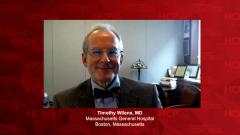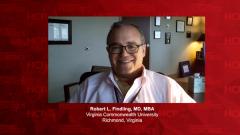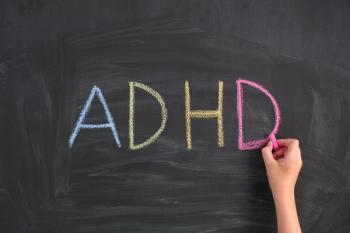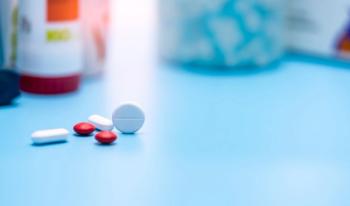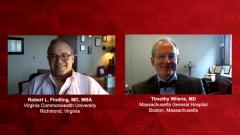
Final Thoughts on the Management of Pediatric ADHD
Robert L. Findling, MD, MBA; and Timothy Wilens, MD, share advice on the treatment of pediatric ADHD and new agents in the pipeline.
Episodes in this series

Robert L. Findling, MD, MBA: Is there anything coming down the pipeline or in the past year or 2 that people should know about? Is anything coming off the road in the not-too-distant future? Is there anything you want to mention?
Timothy Wilens, MD: Yes, there are some different extended-release stimulant preparations that are coming in different forms that make it easier for children, so stay tuned for that. I’m always interested in the nonstimulant class of agents, where there are some new compounds working their way down, including mazindol and centanafadine. There’s also one that’s been repurposed: molindone for impulsive, aggressive ADHD [attention-deficit/hyperactivity disorder]. I’m excited about that. We have a pipeline, and all of the ones that I’ve mentioned certainly can make it through the approval process and be available for these children with ADHD. Because ADHD has so many niches or small groups with certain needs, these medicines have a role also in treating ADHD. It’s always an exciting time to be in ADHD treatment because there are lots available and more to come.
Robert L. Findling, MD, MBA: To close us up, because we’ve run out of time, do you have any parting words for the clinicians watching this that you think would be helpful as they work to provide great care for these children and their families?
Timothy Wilens, MD: Thank you for doing the care you’re doing across all the different professions, including NPs [nurse practitioners], pediatricians, family practitioners, and psychiatrists. Everybody has leaned in and done a phenomenal job caring for children, and it hasn’t been easy with COVID-19. Most of us are getting our footing with telehealth, which has been empirically proven to be effective for treating ADHD, so it’s OK to use. Stay tuned for the implications with the public health emergency, etc.
The last thing is it’s really important that we don’t only mitigate symptoms, but that we actually get children well. We have to pay attention and drive the symptoms down until children are well. Because over the long term, that’s what reduces the functional impairment that’s otherwise the sequelae of undertreated or untreated ADHD.
Robert L. Findling, MD, MBA: Tim, thanks for taking the time to chat with me. Thanks to our audience for watching this Contemporary Pediatrics® Insights. If you enjoyed the content, please subscribe to the e-newsletters to receive upcoming programs and other content in your inbox. Thank you all.
Transcript edited for clarity
Newsletter
Access practical, evidence-based guidance to support better care for our youngest patients. Join our email list for the latest clinical updates.

